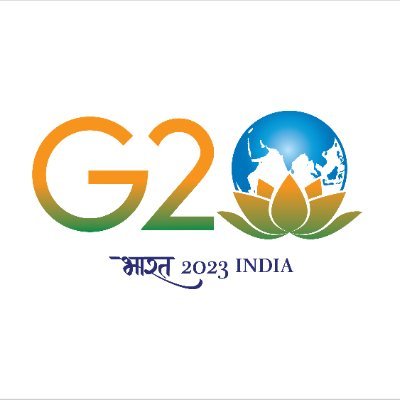We can step forward for the transition from being a rule-taker to becoming a rule-maker with the internationalization of Indianization as Vishav guru
 Dr. M. M. Goel
Dr. M. M. Goel

Honestly speaking, the leadership of G20 (The Group of twenty of the world’s largest economies formed in 1999 as a bloc that brings together the most important industrialized and developing economies to discuss international economic and financial stability) is necessarily a great opportunity for us in India.
Under the leadership of Prime Minister (PM) Narendra Modi presiding over the G20 in 2023 for global economic cooperation signifies responsibility and offers a unique opportunity for shaping the international response to pressing challenges. According to PM India’s G20 presidency will be “inclusive, ambitious, decisive, and action-oriented”. PM Modi called for a “shift in fundamental mindset to benefit humanity as a whole.” He emphasized encouraging an honest conversation on mitigating risks posed by weapons of mass destruction and enhancing global security. We seek to build consensus on debt sustainability and creating disaster and climate-resilient infrastructure. India’s G20 plans also include a special focus on start-ups and bridging the digital divide. To forge common ground on key issues among prominent countries, “Our endeavour as the G20 chair is to make that consensus more relevant through wider consultation”. India will host more than 200 meetings at over 50+ locations across the country which may attract foreign tourism with multiplier effects
We can step forward for the transition from being a rule-taker to becoming a rule-maker with the internationalization of Indianization as Vishav guru.
The members of the G20 include Argentina, Australia, Brazil, Canada, China, France, Germany, India, Indonesia, Italy, Japan, the Republic of Korea, Mexico, Russia, Saudi Arabia, South Africa, Türkiye, the United Kingdom, the United States, and the European Union. Together, the G20 accounts for more than 80% of the world GDP, 75% of global trade and 60% of the population of the planet. The major achievements of G 20 include strengthening the role of emerging economies, such as BRICS, reforming international financial institutions, improving discipline and tightening oversight over national financial institutions and regulators, improving the quality of financial regulations in economies
Being a needonomist, it is my duty to say something authentic in the new role of India depicted in the G20 logo ‘a lotus flower and a globe’, while the theme for India’s G20 presidency is “One Earth, One Family, One Future” which highlights its commitment to ‘Vasudhaiva Kutumbakam’ (the world is one family).
We Indians believe empathy is the supreme of all the emotions that makes Bharat a world leader with vasudhaiva kutumbakam (the world is one family), taken from the Maha Upanishad (most ancient of Vaishnava Upanishads attached to the Atharvaveda) for elucidating global outlook as all living beings on the earth are a family.
We must use the opportunity to promote Bharat as a knowledge economy where ‘Sarswati’ is equally if not more than ‘Lakshmi is worshipped at the international level. Bharat is called India in English dictionaries as an independent nation declared in August. We need to glorify Bharat to make it incredible INDIA as an independent, non-violent, democracy with integrity and amity.
To face socio-economic global challenges, global leaders must understand and adopt Gita-based Needonomics (economics of needs) flowing from sloka no 22 of chapter 09 used in the logo of Life Insurance Corporation (LIC ) of India ‘Yogakshemam Vahamyaham’(Your welfare is our responsibility). Needonomics as innovation is spiritual, nonviolent, and ethical in nature with a common sense approach- an idea of India must reach to the G20 leadership. It is believed by the writer that the problems including war ( Russia and Ukraine), violence, terrorism, discrimination, discontent, exploitation, and corruption of all kinds are caused by ‘Greedonomics’ (economics of greed) which can be reduced if not removed by ‘Needonomics’ and deserve attention and adoption by all the stakeholders including G20 leadership and policymakers. By adopting needonomics at all levels, we can reduce poverty and unemployment by going beyond looking at the government to find ways to develop the most valuable resources, the people. We must accept the responsibilities of needo-education of youth for needo-employability and needo-entrepreneurship. Needo-health with a healthy lifestyle based on needo-consumption.Needo-finances to earn a decent living by judicious spending. Needo-morality to live a disciplined life with empathy (not lip service of sympathy) as Needo-altruism is required. We need resources that are certainly limited and required to be spent judiciously with mindfulness. The domain of ‘Needonomics’ with accuracy, brevity, and clarity (ABC) has to be understood and adopted for the solution of economic and non-economic problems in the global society including G20.
We need to research and rethink out-of-the-box solutions for the problems faced by the world including recession. The global economy can be people-friendly and socially beneficial only if undertaken in accordance with NAW approach (Need, Affordability and Worth of the goods and services) of international marketing which falls in the domain of needonomics. The stakeholders as needo-population must become street SMART and SIMPLE with spiritual input flowing from Gita and Anu-Gita. All challenges and problems in the present era call for understanding the gita-based principle of ‘Needonomics’ with spiritually guided materialism (SGM) strategy for needo-wealth, needo-health, needo-peace and needo-happiness.
To reduce panic and fear of the global financial crisis in any economy of the world, it would be relevant to adopt the canons of public expenditure advocated by Dr. B.R. Ambedkar. The remarkable thing about Ambedkar’s canons of public expenditure is that they are ism-neutral. Every single decision should be assessed in terms of faithfulness to the will of the people; wisdom as provided by the professionals in the field, coupled with well-considered and honest judgment in execution. Let G20 leadership understand and adopt the cannons of public expenditure by Ambedkar.
To focus on the global economic environment, we certainly need solutions to the problems with street SMART leadership at all levels of operation. To be honest, UNO, World Bank, IMF and G20 leadership need reorientation with SMART model of Governance. We have to promote Gita-based needonomics the idea of India as the panacea for long-term implications for global peace.
My best wishes to the G20 in 2023 under the leadership of Indian Prime Minister Narendra Modi with warm hospitality for which Bharat is known far.
(The author is the Founder Needonomics School of Thought, Former Vice-Chancellor and superannuated Professor from Kurukshetra University.)
Advertisement | InfoCom Solutions

e-mail: infocom.krc@gmail.com
Know More | Apply Here


